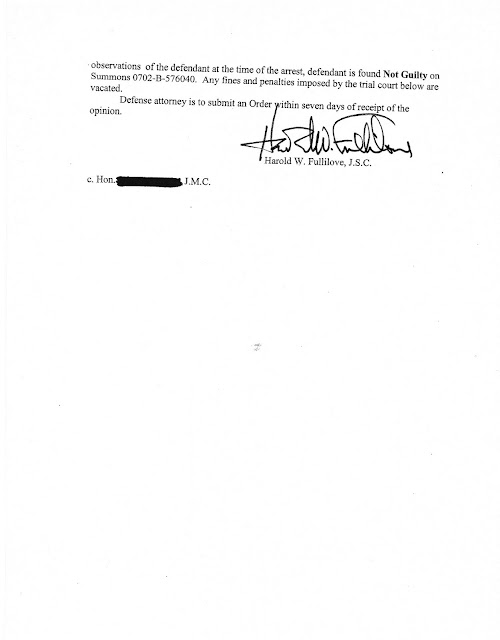On January 15, 2010, the New Jersey DWI and Refusal Statutes were amended by “Ricci’s Law.” The law requires the installation of an Ignition Interlock Device (see N.J.S.A. 39:4-50.16) for a set period of time on all vehicles principally driven by the defendant in the following cases: (1) Refusal Convictions, (2) Repeat DWI-Convictions, and (3) DWI convictions where the blood alcohol level was .15% or higher.
The Ignition Interlock is a breath-testing device that attaches to the vehicle. The device prevents the vehicle from starting if the registered BAC exceeds 0.05%. For more information about the Ignition Interlock device, see the NJ MVC Page here: www.state.nj.us/mvc/Violations/dui_Ignition.htm
I was interviewed for a radio show about the legislation when it was pending. I said that I believed the law was adding another layer of expense to a conviction that is already an enormous cost to defendants. The middle and working class defendants (and their families) will be the ones most impacted. The rich will be able to sustain the cost (although they can also be impacted by the penalties of a DWI conviction already – like losing their licenses and jobs). Under the Legislation, poor defendants will not have to pay the monthly either cost of the device or will pay a reduced fee. Who will pay pick up the overage – you guessed it; NJ taxpayers. The New Jersey middle class defendant (and his/her family) is likely to sustain the brunt of this new Legislation. No work or conditional licenses, increased insurance rates for three years, three-years of $1,000.00 surcharge bills — etc. – now this; it seems like proverbial “overkill.”
One issue that has arisen is whether the statutory changes apply to cases that occurred before the law went into effect. I had Judges rule differently in two cases I handled recently. I believe that imposing the sentence to cases that occurred before the law was enacted is “ex post facto” and accordingly, unconstitutional.
Article I, section 10, clause 1 of the United States Constitution provides that “[n]o State shall … pass any … ex post facto Law….” Article IV, section VII, paragraph 3 of the New Jersey Constitution imposes a similar prohibition: “[t]he Legislature shall not pass any … ex post facto law….” A statute violates the Ex Post Facto Clause if it imposes a punishment for an act that was not punishable at the time it was committed, imposes additional punishment to that then prescribed, or deprives a defendant of any defense available under the law when the crime was committed. see generally State v. Muhammad, 145 N.J. 23, 56 (1996).
I filed a Motion to Amend the Sentence (in the case where the Ignition Interlock was imposed retroactively, and I believe unconstitutionally). The Court agreed with my position, amended the sentence, and thus eliminated the Ignition Interlock. The Ignition Interlock would have been an inconvenience, added expense, and embarrassing for my client.
My client and I were pleased (and relieved) that the Court re-considered the issue. The Judge had the courage to change the Court’s original sentence. The just result for my client, accomplished through intellectual debate and advocacy, was a testament to the principles of United States jurisprudence. The Order is attached below:
Greggory M. Marootian, Esq.
Livingston, NJ 07039
Office: 1-973-994-3732
Cell: 1-201-404-8990
Fax: 1-973-994-2239




